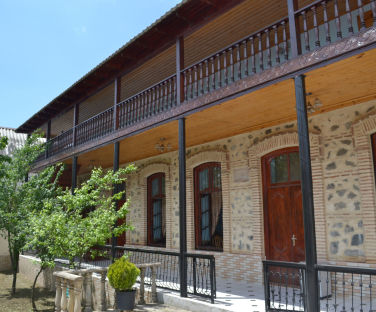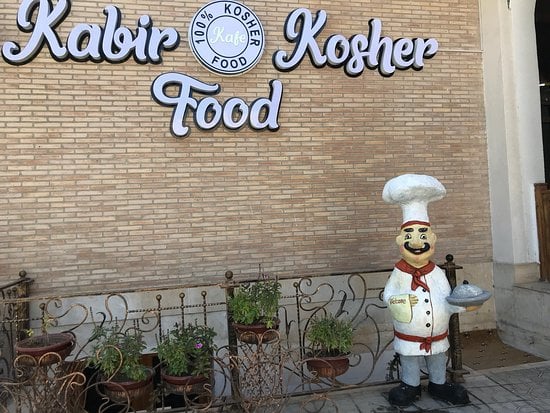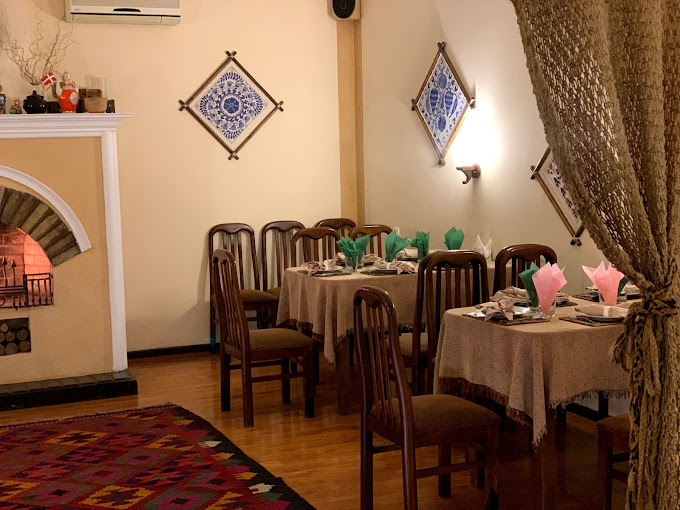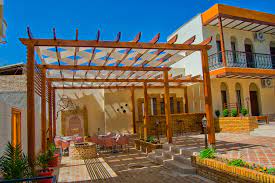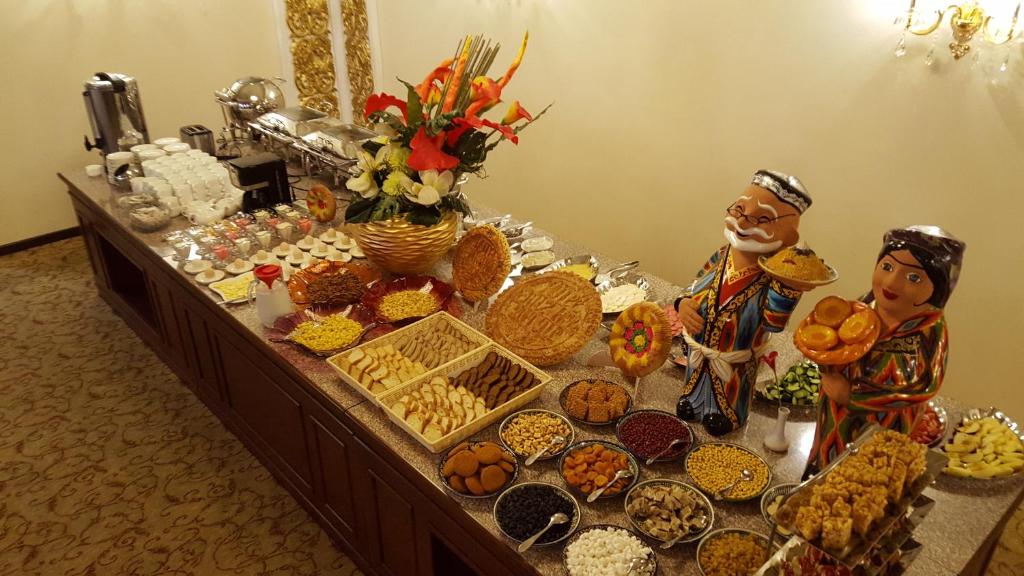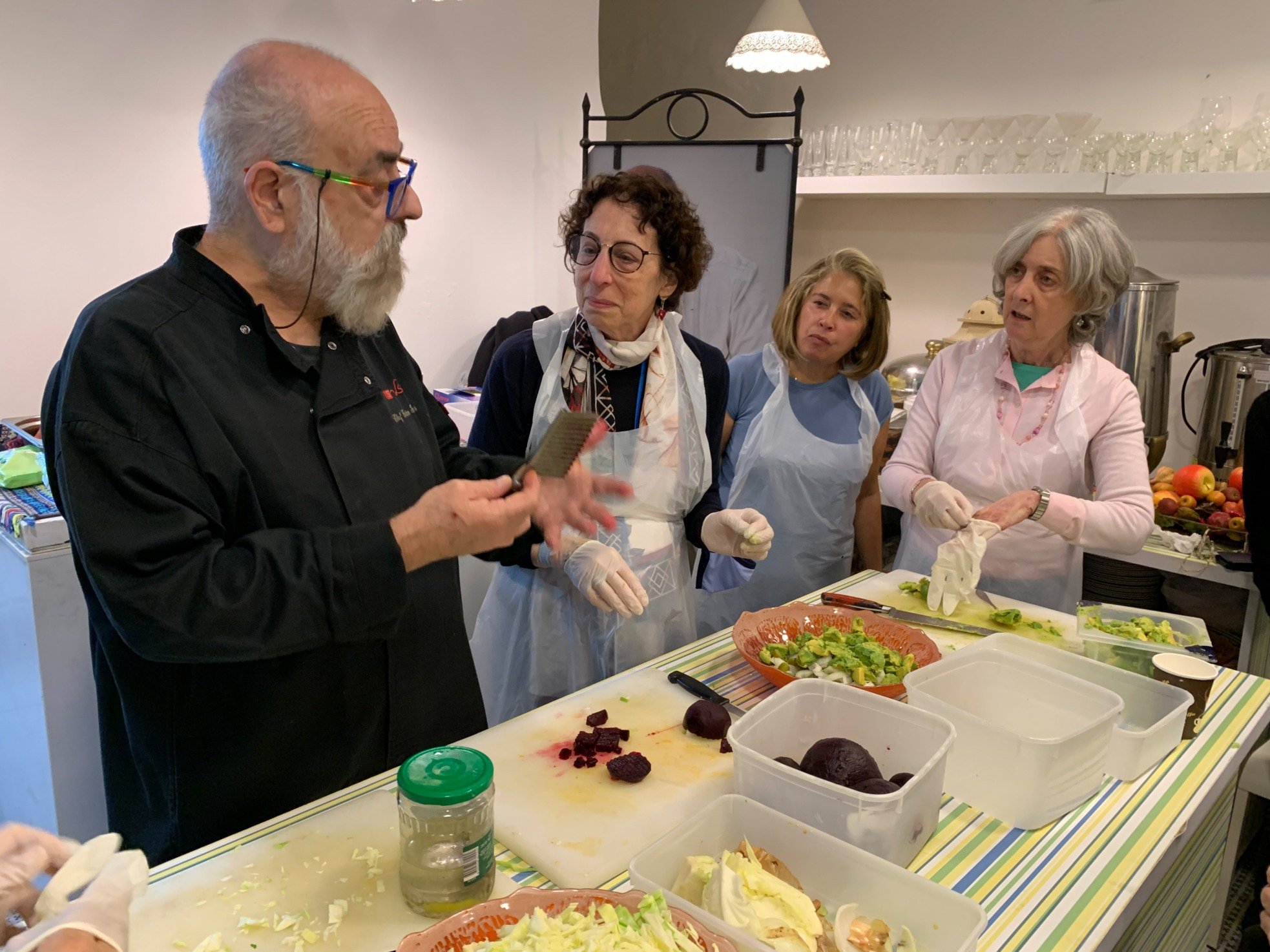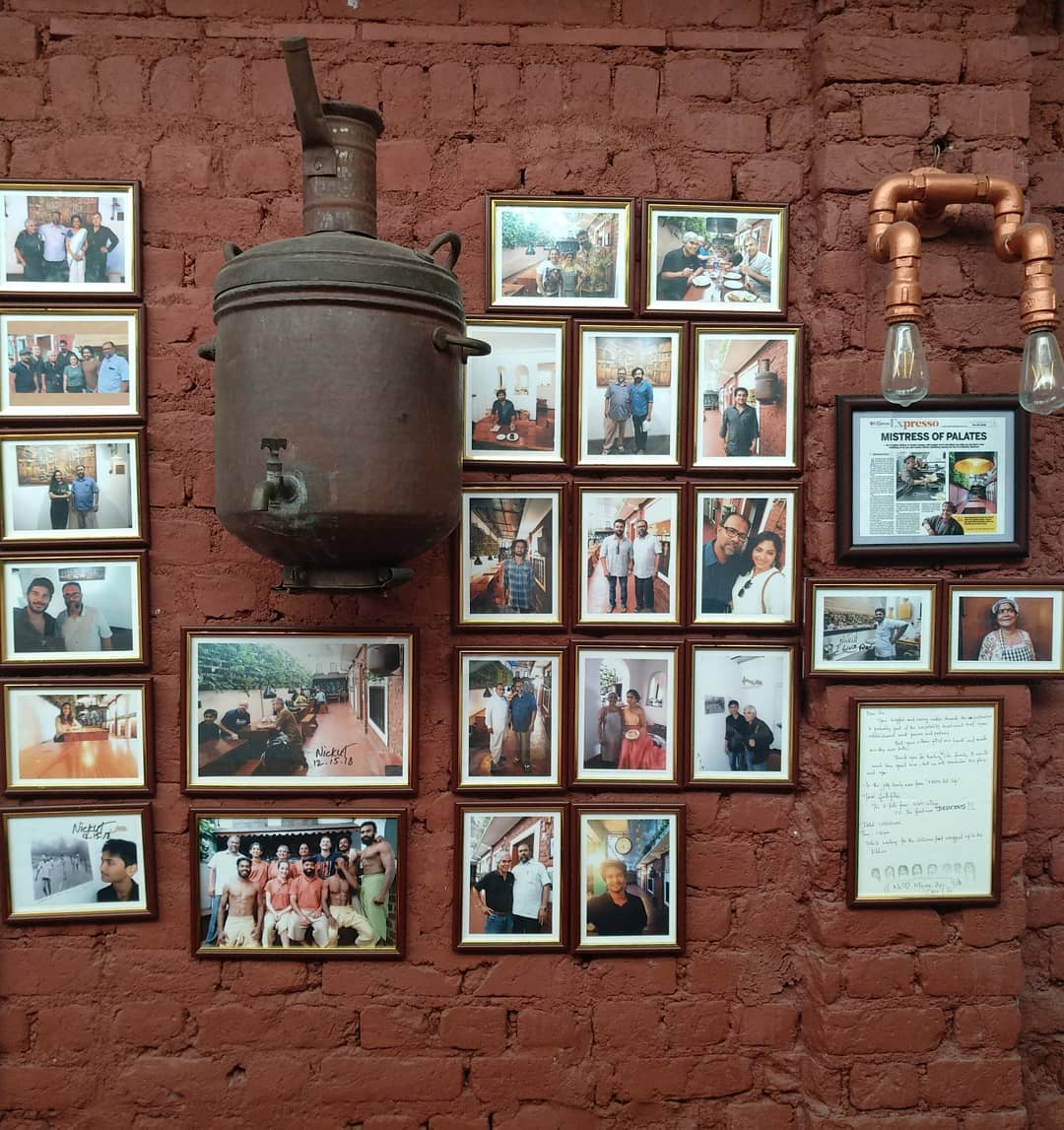Oguz in north-west Azerbaijan was historically one of the main Jewish settlements in the country whose Jewish population peaked in 1930-1933 at 2,000-2,500 residents. A unique community formed here of Jews and Muslims living together harmoniously, sharing holidays and traditions. While many left following the fall of the USSR, still some members of this community remain, with several Jewish-style houses (featuring Jewish ornaments and often facing towards Jerusalem) and two synagogues and cemeteries offering a window into the town’s Jewish past. The synagogues are named simply the Upper and the Lower due to their location in the town. The Lower Synagogue was built in 1849 and was the first synagogue in Oghuz, while the Upper Synagogue was built in 1897 and, completely restored in 2006, is visited every Friday and Saturday by Oghuz’s remaining Jewish population for prayers.
Archives: Directory listings
Directory listings
Kabir Kosher Food
Located in Kabir Hotel in Bukhara, the restaurant offers a variety of traditional Middle Eastern and kosher food.
Old City
Central Asian Cuisine. one of the most famous halal oriental restaurants in the city. It prepares its dishes using the best fresh ingredients and authentic oriental methods. Among the dishes offered by the restaurant there are chicken with cashews, kebabs, goat meat with honey and walnuts, and others. This restaurant is also characterized by its beautiful decorations that make the environment of the place comfortable and suitable for meetings with friends and families.
Hotel Malika Bukhara
located in the heart of the pedestrian area of old Bukhara, just 50 meters from Lyab-i Hauz Architectural Complex. This 4-star hotel offers a spa center and a rich breakfast buffet with national and European dishes. WiFi is available throughout the property.
Emir Han Hotel
Emir Han Hotel is located in Samarkand, within walking distance of the bus station and a short drive from the train station and airport. The hotel offers a restaurant, free WiFi, and private parking. Rooms are air-conditioned, decorated in bright colors, and feature a flat-screen TV and private bathroom with a hairdryer and toiletries. Guests can also take advantage of the 24-hour front desk and garden on-site.
International Hotel Tashkent
The International Hotel Tashkent is situated in a central, green area and is within walking distance of the Tashkent Expo Centre and International Business Centre. The hotel offers free private parking. The rooms are air-conditioned and elegantly designed, featuring amenities such as a TV, minibar, and a safety deposit box. Guests will also find slippers, a bathrobe, and a hairdryer in the bathroom. The hotel features an indoor swimming pool and a gym, as well as a sauna and massage services for guests to relax and unwind. Bodomzor Metro Station is a short 20-meter walk from the hotel, and Tashkent Central Station is a 20-minute drive away. The hotel is 16.5km from Tashkent International Airport and offer airport pick up at surcharge.
Finding North Haifa Classic 30 Days
Come to Haifa and live like a local for a month as we go on a journey of discovery and introspection. Step out of your life. Reflect, reorient, and return. When was the last time you gave yourself a month to fall into the rhythm of life in a foreign country while examining what’s really important to you for the next stage of life? Haifa and its environs serve as our lens and landscape as we delve into Jewish wisdom through text study, explore shared society, meet innovators and entrepreneurs and engage in our own storytelling. Build community, meet the people shaping their vision for the future, and gain insight for living a life of meaning. Program led by a rabbi/educator who is a Haifa native and a journalist.
Pizza Tanya
Here at Pizza Tanya, we’re proud to be the only dairy kosher restaurant in all of Orange County. Our story began when two top chefs (who were also childhood friends!) banded together to provide a unique dining experience for the community they adored. Until Pizza Tanya came along, there were no all-kosher restaurants in the Orange County/Long Beach area — now we make and serve a wide variety of delicious kosher options daily!
The Jewish Story of Kochi, India
Jewish Kochi (also known as Cochin) is a city in southwest India’s coastal Kerala state. It has been a port since 1341, when a flood carved out its harbor and opened it to Arab, Chinese and European merchants. Sites reflecting those influences include Fort Kochi, a settlement with tiled colonial bungalows and diverse houses of worship. Cantilevered Chinese fishing nets, typical of Kochi, have been in use for centuries.

The Jews of Kochi are the oldest group of Jews in India, with roots that are claimed to date back to the time of King Solomon. The Kochi Jews settled in the Kingdom of Kochi in South India, now part of the state of Kerala. As early as the 12th century, mention is made of the Jews in southern India by Benjamin of Tudela. They are known to have developed Judeo-Malayalam, a dialect of Malayalam language.
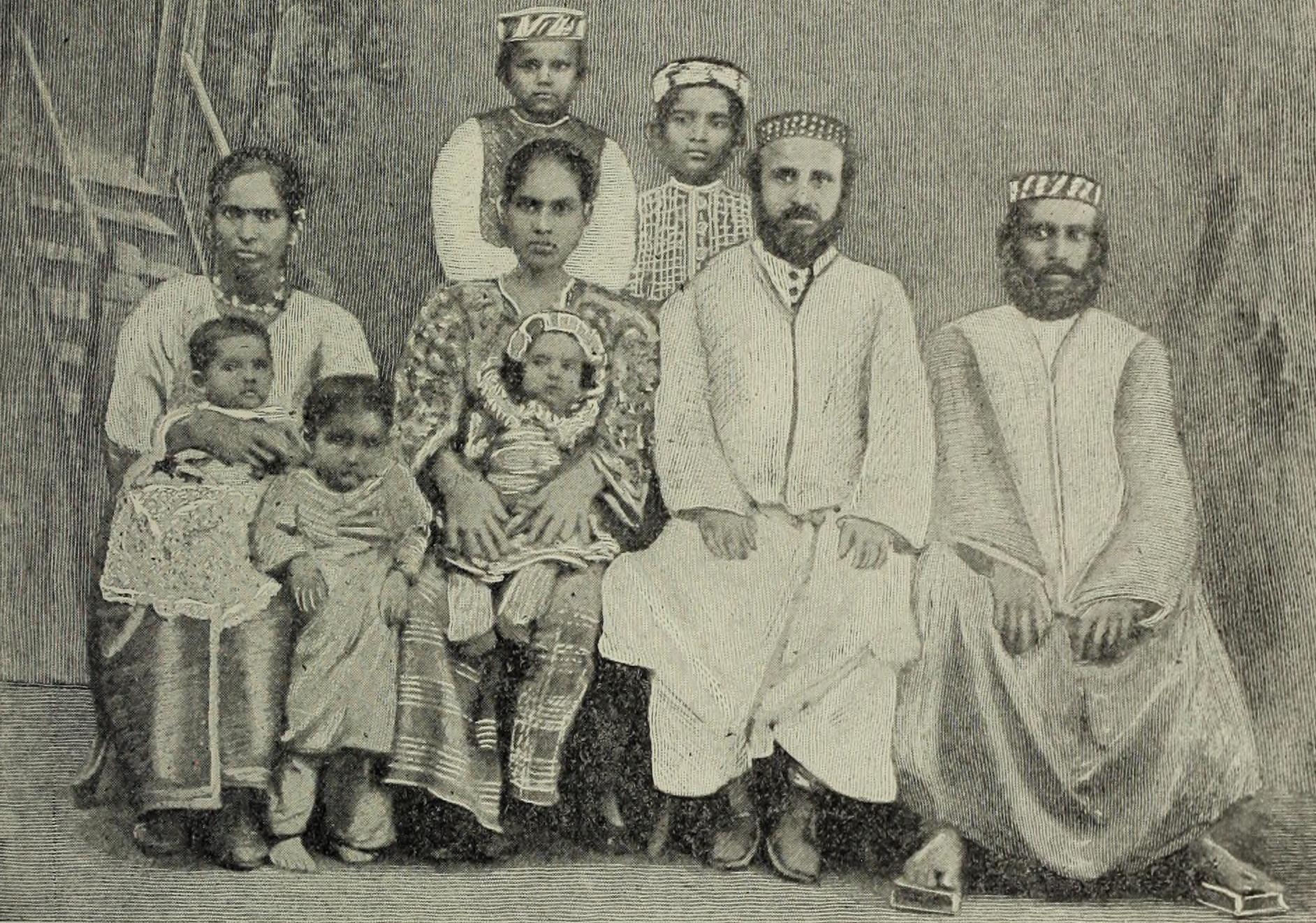
Following their expulsion from Iberia in 1492 by the Alhambra Decree, a few families of Sephardi Jews eventually made their way to Kochi in the 16th century. They became known as Paradesi Jews (or Foreign Jews). The European Jews maintained some trade connections to Europe, and their language skills were useful. Although the Sephardim spoke Ladino, in India they learned Judeo-Malayalam from the Malabar Jews. The two communities retained their ethnic and cultural distinctions. In the late 19th century, a few Arabic-speaking Jews, who became known as Baghdadi, also immigrated to southern India, and joined the Paradesi community.
After India gained its independence in 1947 and Israel was established as a nation, most of the Malabar Jews made Aliyah and emigrated from Kerala to Israel in the mid-1950s. In contrast, most of the Paradesi Jews (Sephardi in origin) preferred to migrate to Australia and other Commonwealth countries, similar to the choices made by Anglo-Indians.
Synagogues
Most of their synagogues still exist in Kerala, with a few being sold or adapted for other uses. Among the 8 synagogues that survived till the mid-20th century, only the Paradesi synagogue still has a regular congregation. Today it also attracts tourists as a historic site. A few synagogues are in ruins and one was even demolished and a two-storeyed house was built in its place. The Chendamangalam synagogue was reconstructed in 2006 as Kerala Jews LifeStyle Museum.
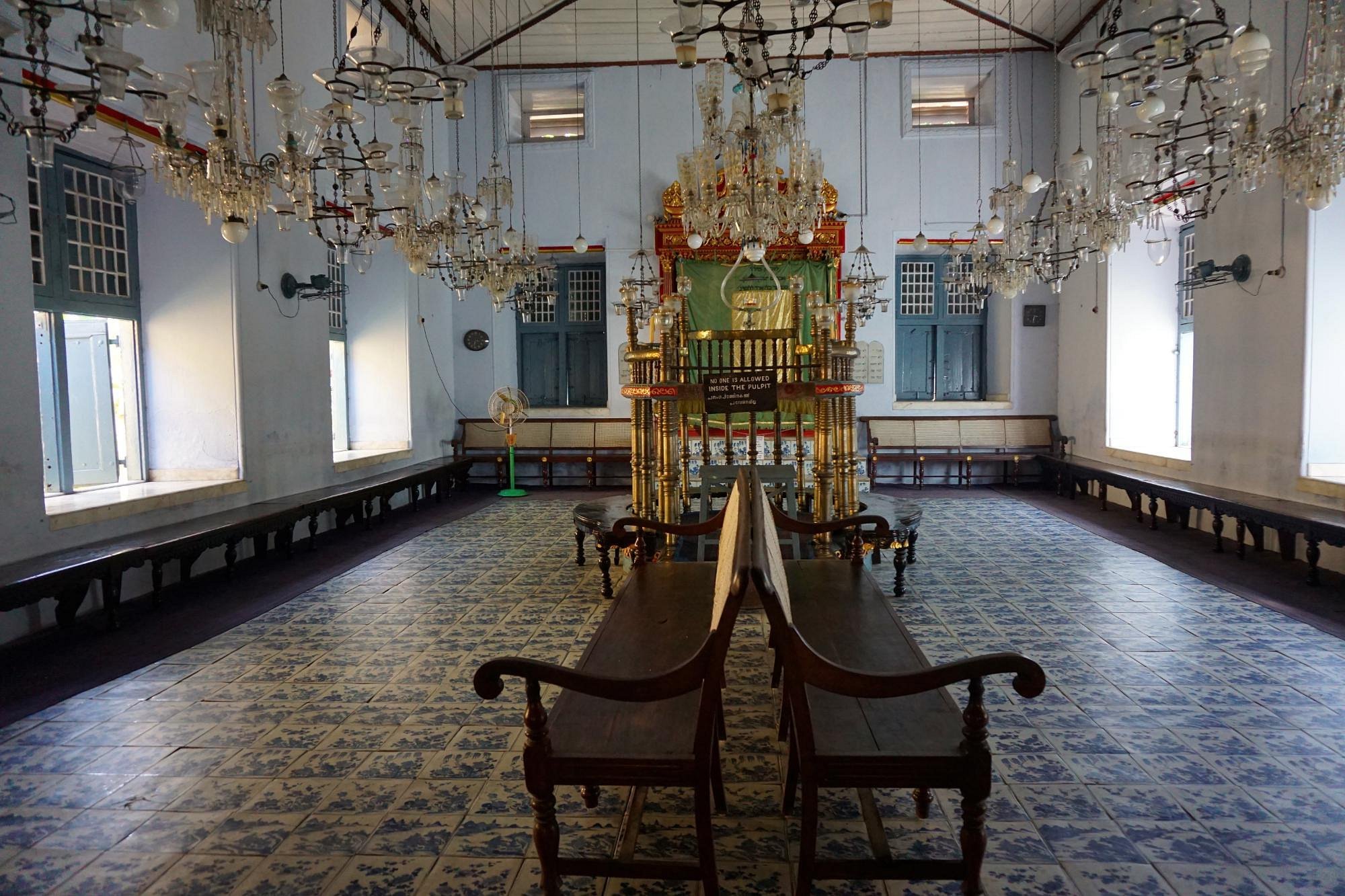
Jew Town
The historic Jew Town is the heart of the once-thriving Jewish community and a popular spot for tourists today. At the center of Jew Town is Synagogue Lane, where one can find antiques, carvings, and vintage items for sale, along with Keralan crafts and local spices. The neighborhood was once lined with Jewish homes and shops that are now mostly owned by Muslims.
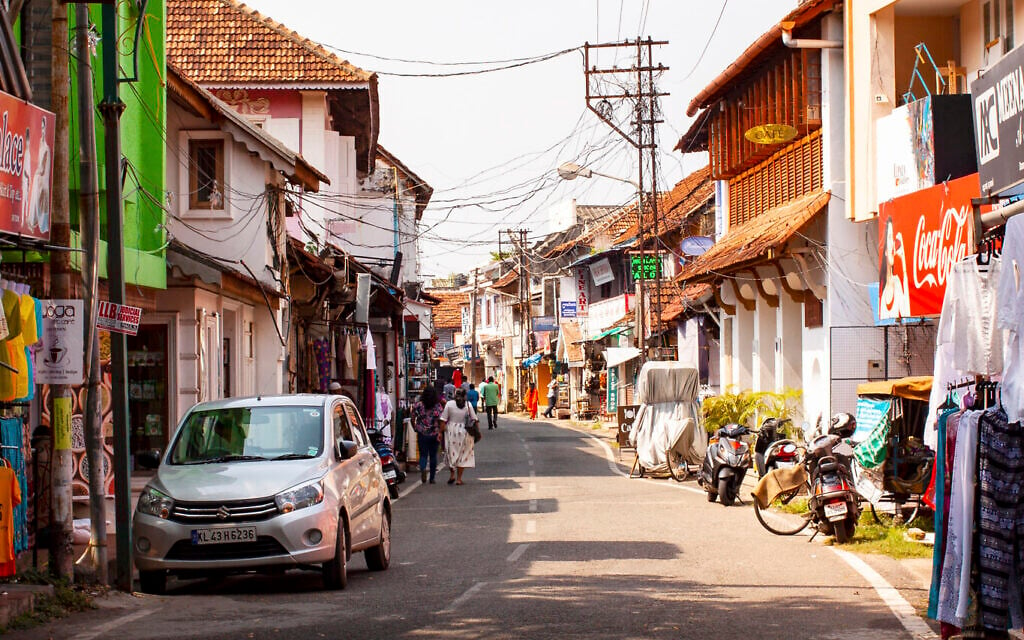
Notable Jewish Figures
Joseph Rabban, the first leader of the Jewish community of Kodungallur, was given copper plates of special grants from the Chera ruler Bhaskara Ravivarman II from Kerala
Sarah bat Israel, whose tombstone (d. 1249 A.D) is the oldest found in India and is currently located at the Chendamangalam Synagogue
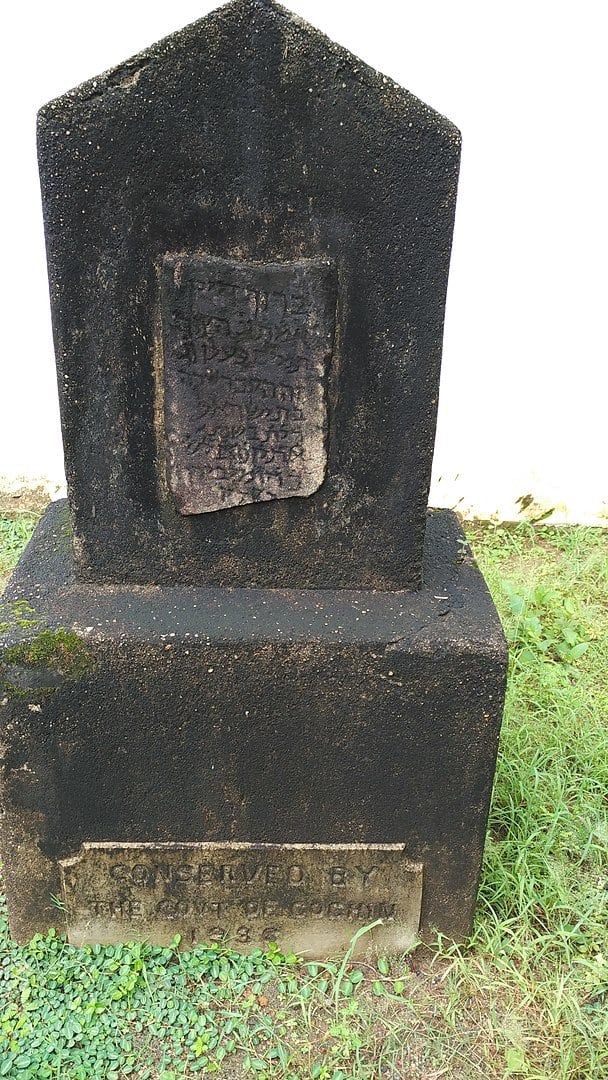
Eliyah ben Moses Adeni, a 17th century Hebrew poet from Kochi.
Nehemiah ben Abraham (d. 1615 A.D), (Nehemiah Mutha), patron saint of Malabar Jews
Abraham Barak Salem (1882–1967), Kochi Jewish Indian nationalist leader
Benjamin Meyuhasheem, the last Kochi Jew in Seremban, Malaysia
Meydad Eliyahu, Israeli artist
Mocha Art Cafe
As the name suggests, Mocha art cafe is where one heads when in the mood for some relaxing enjoyment, tasty coffee, and soul-satisfying ambience! As you walk through the Synagogue lane in Jew town Mattanchery a panoramic view of the historic Jewish Synagogue greets your eyes. This oldest synagogue in the country attracts thousands of tourists and is one of the most visited spots in Kochi. However next to the Synagogue is another Dutch building 400-year-old and once upon a time home to the Rabbis who worked in the Synagogue.
Back in 1910 Abdul Karim Mohammed a spice trader bought the building and converted it into a warehouse. Karim Mohammed passed on this legacy to his son AKM Sulaiman. As tourism flourished in Kochi and the number of tourists visiting the Synagogue increased
Mr. Sulaiman moved his business from the Dutch building to another part of the city. From then on, this building with its treasure trove of history remained closed for almost thirty years until Junaid Sulaiman grandson of Mr. Karim Mohammed decided to convert it into an art cafe.
